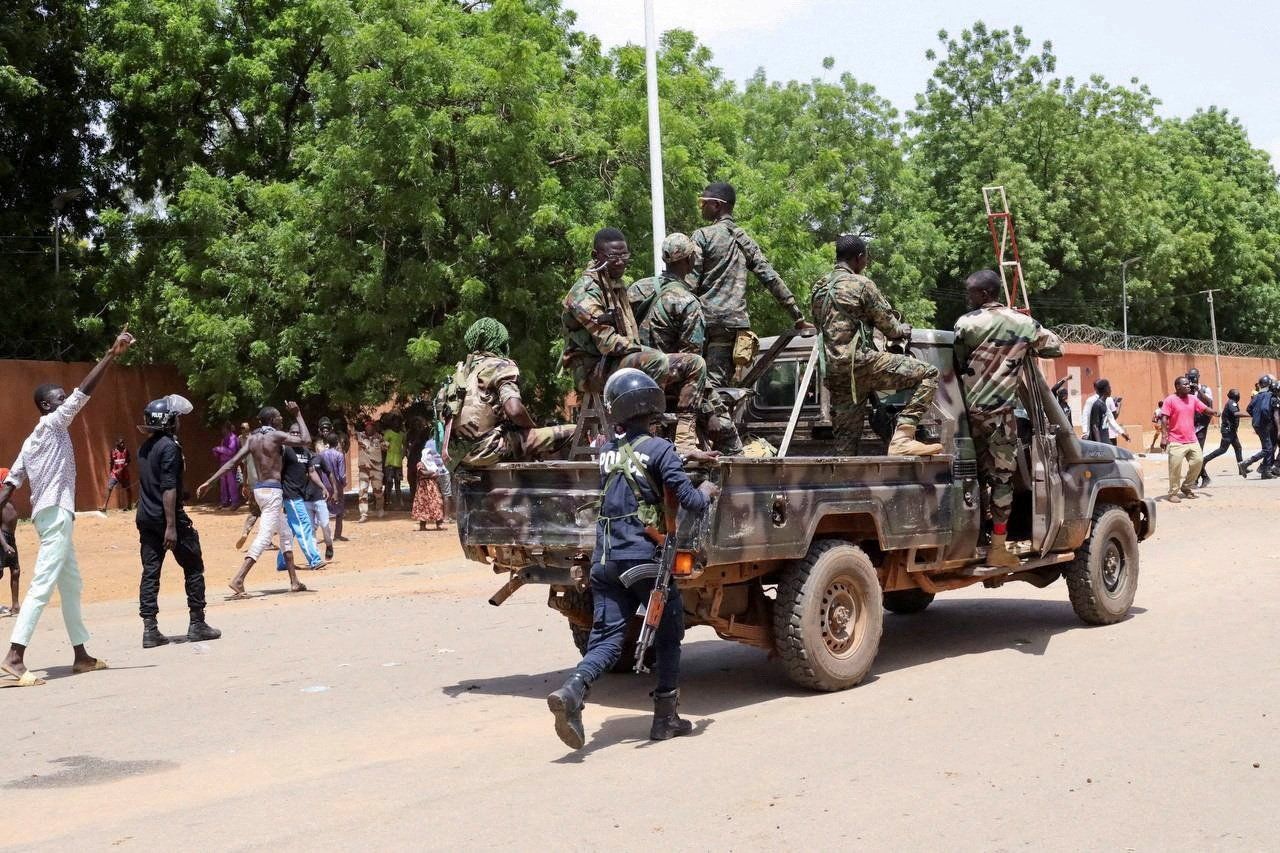As the crisis in coup-plagued Niger deepens, a French military plane on Tuesday began evacuating European nationals after junta leaders closed the country’s airspace, halting commercial flights. Spain is also preparing to evacuated citizens from Niger.
Compounding the chaos, two countries in the Sahel region – Burkina Faso and Mali – issued a warning that any attempts by outsiders to reinstate Niger’s recently deposed leader Mohamed Bazoum would be viewed as a declaration of war on them all.
Some quick background. This threat came after a group of West African countries, led by Nigeria’s President Bola Tinubu, issued a statement on Sunday giving Niger’s junta leaders one week to reinstall Bazoum or risk a harsh response from the bloc, including potential military force.
So far, the group of West African states has imposed an economic blockade on aid-reliant Niger in a bid to force the junta to back down.
Mali and Burkina Faso, both impoverished former French colonies, have experienced military coups since 2020. What’s more, both have ditched former colonial power France in favor of closer ties with … Russia.
Mali, for its part, expelled 5,000 French troops last year, inviting in 1,500 Wagner mercenary fighters instead to, uh, … “keep the peace.” Meanwhile, Yevgeny Prigozhin, head of the Wagner Group, praised the power grab in Burkina Faso last year. A similar dynamic is playing out in Niger, where protesters in recent days called for French troops to leave and chanted in support of Moscow.
The US and France have a combined 2,500 troops in Niger as part of a longtime effort to crack down on Islamic terrorism in the region. But they also aim to offer a bulwark against Russia’s growing clout across the continent.
Indeed, if things get even more heated in Niger in the days ahead, not only does the situation risk spilling over into a full-blown regional crisis, it also could place the US and France in a pseudo proxy war with the Kremlin in the heart of Africa.
